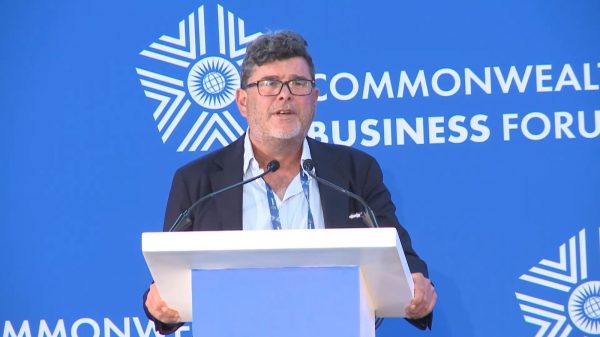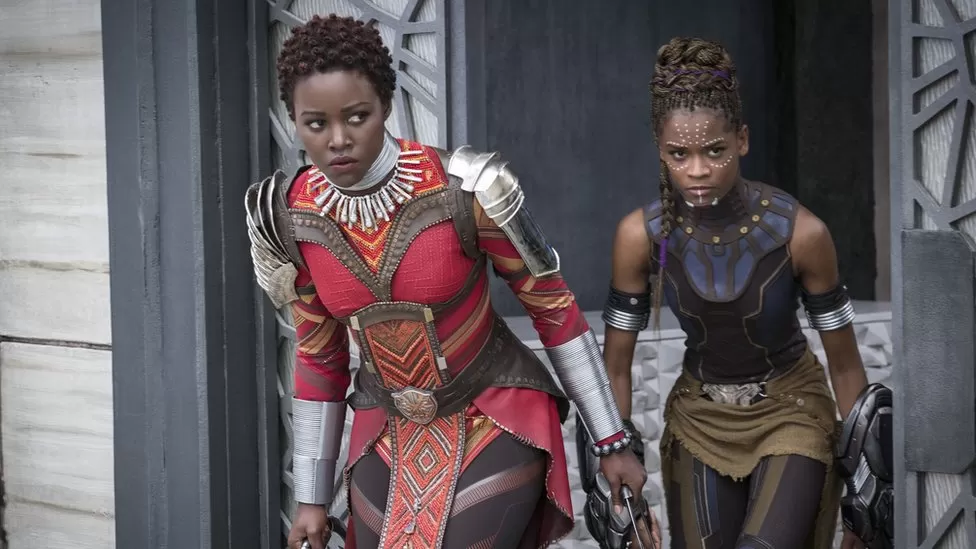Marvel’s Black Panther: Wakanda Forever has thrilled African and American audiences alike and reignited debate about the state of Africa and how a re-imagined continent might look in the future.
The fictional kingdom of Wakanda represents a ‘sliding doors’ moment of sorts: an African country that has never been colonized and is an independent, wealthy, and highly developed state. Instead of being harvested in a resource-intensive world, the Wakandans are the harvesters: the existence of Vibranium, a precious metal that has its origins in outer space, gives them a resource that allows them to become the most technologically advanced nation in the world and develop a highly advanced economy.
It is a story many Africans and African-Americans have been waiting to hear. Following the huge success of Black Panther, the second highest-grossing Marvel movie ever, the sequel has inevitably led to Africans across the continent claiming their country as inspiration for the kingdom of Wakanda. Fans in Lesotho, Ethiopia, Botswana, Angola, Nigeria, and Kenya all believe they are the true inspiration for Marvel’s alternate universe.
While arguments can be made in favour of each of these countries, to look at nation-states in Africa today misses the point of Ryan Coogler’s films. Or rather, it misses the human element: it is the Wakandans, particularly heroes Prince T’Challa and his sister and successor Shuri, who make the kingdom what it is.
To find the link between real-life Africa and the fictional kingdom of Wakanda, we are better off focusing on Africa’s real-life citizens: the activists, visionaries, leaders, and change-makers who have strived to make their countries better places. These leaders exist and have shown Africans a different path forward.
Let’s begin with governance. The most striking characteristic of Wakanda is its good governance, with virtuous and effective leadership for the benefit of all citizens. It is the kind of governance that is being promoted today by leaders like Sudanese billionaire and philanthropist Mo Ibrahim. Ibrahim’s eponymous foundation awards the Ibrahim Prize to heads of state who have finished their democratic mandate within the past three years and demonstrated excellence in their leadership. The prize is worth $5m over ten years and has already been awarded to Nelson Mandela, Joaquim Chissano, and Festus Mogae. The Wakandans would, no doubt, be serial winners.
Another redeeming feature of Wakanda is the care its people have for the environment, they commune with nature and harness technology to ensure a clean future for the new generations. And while leaders like Nigerian activist and thinker Ken Saro-Wiwa spent decades agitating for the rights of the Ogoni people, eventually succeeding in forcing oil company Shell to leave the lands that it was polluting, the rest of the continent has failed to consistently reach the same heights.
And then there is innovation; the Wakandans harness Vibranium through applied research to create advanced technologies that give the Wakandans military and economic superiority over their adversaries. Again, there is a real-life parallel. Few have done more to promote innovation than Jean-Claude Bastos, the founder of the African Innovation Foundation with its annual Innovation Prize for Africa. Over $1 million has been awarded in prize money since 2011, with nearly 10,000 innovators from 54 African countries taking part. Bastos believes that only Africa-led innovation can unlock the continent’s true economic and social potential.
Feminism also features prominently in Black Panther: Wakanda Forever, with Shula taking over the leadership of her deceased brother Prince T’Challa. Both films are blessed with a strong cast of inspiring women such as Shula, Queen Ramonda, Okoye, and Nakia. Here, real-life Africa must build upon the efforts of women like Nigerian author Chimamanda Ngozi Adichie, a real-life inspiration for this female empowerment, known globally for her award-winning novels. In her ‘A feminist manifesto in fifteen suggestions’, she says “Your feminist premise should be: I matter. I matter equally. Not “if only.” Not “as long as.” I matter equally. Full stop.”
The fifth, and perhaps most important difference between modern Africa and Wakanda, is the rejection of foreign control and the faithful guarding of national independence. Perhaps no other African symbolizes this struggle more than the Ethiopian Emperor Tewodros II, who fought hard to protect his country from the colonizing power of the British Empire. Initially successful in his war with the British, he fought valiantly against the strongest power in the world at the time causing huge embarrassment to its army. His actions contributed to Ethiopia’s proud claim to be the only nation on the continent never to have been colonized.
The examples of these five incredible Africans also tell a sadder story, which is reflected in the state of the continent today. Their visionary actions have led to every one being attacked and opposed, and paying a significant price. For Ken Saro-Wiwi it was the ultimate price of execution in 1995. For Jean-Claude Bastos, it was coercive detention as an innocent man. For Mo Ibrahim and Chimamanda Ngozi Adiche, it has been vilification in the media and a life outside of Africa.
As the Wakandans would surely know, the tallest tree begins its life as a tiny seed. If Africans want to become Wakandans they must find the seeds of the next generation of leaders and help them blossom into the future leaders that will provide good governance, environmental stewardship, and innovation at the heart of a strategy featuring strong women. Only then will Africa be able to resist the siren song of foreign control and investment.
Only then will there be a real-life Wakanda.























